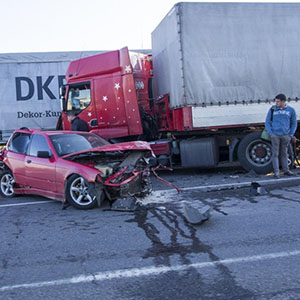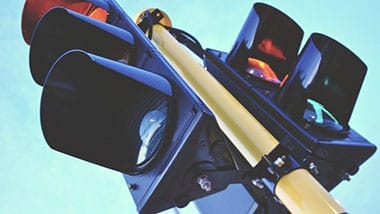Negotiation: Steering Clear Of Trial
Truck AccidentsThe Art Of Negotiation In The Settlement Of Trucking & Auto Accident Injury Claims
When negotiating the settlement of a personal trucking and auto wreck injury claim, insurance companies often use a wide range of defenses. These can include the following claims:
- Comparative Negligence
Insurance companies often argue that the claimant is partially or entirely responsible for their injuries due to their own actions or negligence.
- Pre-existing Injuries
Insurance companies may argue that the claimant had the same injury or a pre-existing condition before the accident, which reduces their responsibility to provide compensation.
- Disputes Surrounding Causation
The defense might say that the claimant’s injuries weren’t directly caused by the accident, challenging the connection between the incident and the harm suffered. This is called legal causation.
- Third-Party Liability
Some defendants might argue that someone other than the defendant should be held responsible for the plaintiff’s injuries.
- Allegations Of Exaggeration
The defense may argue that the claimant is making their injuries or losses seem worse than they actually are.
The Importance Of Having A Skilled Negotiator On Your Side
With all of these defenses in mind, it’s clear to see how important it is to have an experienced litigator on your team who can use negotiation to combat these tactics and find a fair settlement. Negotiation in personal injury cases is an art that demands precision and strategy, similar to a high-stakes game of cards where knowing when to hold and when to fold can make or break you.
A misstep in negotiation can have costly consequences, giving the opposing side the upper hand in your case. If you make the wrong move in a negotiation, you have given something away to the other side, and they can make you pay dearly for it. As such, the most successful negotiation outcomes often result from the experience of those who regularly practice it. Negotiation has its own rhythm, tempo, and an appropriate choice of language. It’s an arena where experience shines, and most individuals, including many attorneys, may not have the depth of experience required for contentious negotiations.
Moreover, being able to read the opposing side, particularly insurance adjusters, is essential to success. Like in a game of cards, discerning when your opponent is sincere or bluffing can greatly impact the dynamics of your negotiation. Achieving a favorable outcome hinges on navigating these complexities adeptly, much like the best NFL quarterbacks read defenses and keep the opposing team on their toes.
Thinking Through When To Pursue Trial
Reaching a settlement often involves compromise, but it comes with its own set of clear benefits. For starters, settling your case means it is over – entirely. There’s no longer the stress associated with a possible trial, where the outcome may be uncertain or potentially less favorable than what was offered. Settling is the first day of your post-lawsuit life, a rebirth of sorts, and this has incredible non-monetary value.
Settling also offers the assurance of actually receiving your portion of the case’s resolution. If your case doesn’t settle and proceeds to trial, a successful verdict would result in a judgment against the responsible party. However, collecting on that judgment may not be so straightforward, as factors like bankruptcy can affect the defendant’s ability to pay. In cases involving substantial amounts, Florida law even allows defendants to make periodic payments rather than a lump-sum settlement.
Alternative Dispute Resolution: Your Options For Settling A Case Without Trial
In Florida, courts will order you to go to a mediation as a means of resolving lawsuits before resorting to trial. Mediation is the process of working with a neutral third party who professionally facilitates negotiation between the two disputing parties. This method has proven highly effective in achieving settlements. Skilled mediators excel at bridging gaps and encouraging cooperation, but they do not impose decisions or threaten parties.
Another alternative to trial is arbitration. In fact, some Florida courts order parties to participate in non-binding arbitrations. Unlike neutral mediators, arbitrators render decisions based on the evidence presented. This brings with it its own risks, however, as one side may reject the arbitrator’s decision, leading to continued litigation. Arbitration is growing in popularity.
Having represented clients in both mediation and arbitration, I lean toward mediation for its voluntary and binding settlement potential. However, there are some cases where arbitration works. Mediation allows the mediator to act as a conduit of information, helping each side understand the other’s position more clearly. Armed with a clearer view of what the opposing party might accept, you can reassess your own position strategically. Many of my clients have successfully resolved their cases with mediation, even when settlements were not reached during the process. It provides valuable insights, including the insurance company’s highest offer, without necessarily revealing your bottom line.
When Mediation Doesn’t Work
When you cannot secure what you need – not necessarily what you want – from the insurance company, settlement of a trucking or auto wreck injury claim may not be an option. In such cases, you may have no choice but to continue fighting until a satisfactory settlement can be achieved. In instances like these, trial, more often than not, becomes necessary.
Nevertheless, it’s crucial to remember that cases can be settled at any time, even after a verdict and final judgment. Settlements post-trial, however, tend to align more closely with jury verdicts and judgment figures. This cuts both ways and can leave you either content with your decision to go to trial or wishing you had pursued a settlement earlier, underscoring the importance of obtaining a judgment before engaging with a solvent and collectible corporation willing to negotiate fairly. In any case, working closely with an experienced attorney is the best way to ensure that you have the information and guidance you need to make informed decisions about how to proceed – and find your best-case scenario.
For more information on The Settlement Of Trucking and Auto Wreck Injury Claims, an initial consultation is your next best step. Get the information and legal answers you are seeking by calling (863) 243-6166 today.


